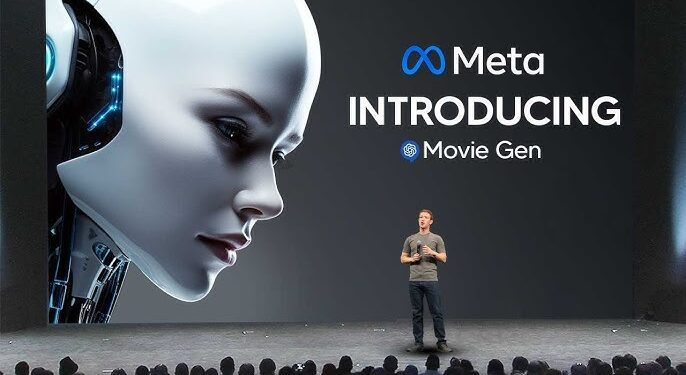In a significant move, Meta has revealed plans for the introduction of an innovative AI-driven video and editing application for Reels that aims to transform the landscape of social media content creation and the trajectory of digital interaction—at least in the eyes of Mark Zuckerberg.
Meta’s ambition: Boosting creativity among social media creators
Meta Movie Gen will empower users to produce videos lasting up to 16 seconds with the help of AI and text prompts. This cutting-edge technology will facilitate the creation of personalized videos, allowing users to provide an image of an individual which can then be synthesized with a text prompt to generate a video featuring that person along with vibrant visual elements, as noted in a blog post from the tech giant dated October 4. This initiative, among others currently in development at Meta, primarily targets filmmakers and content creators in the social media sphere, providing them with instruments to significantly elevate their creative expressions.
The emergence of AI-generated video is being recognized as a formidable asset from film studios to social platforms, causing ripples across various sectors. The surge in generative AI has triggered apprehensions, prompting governments around the globe to invest in research aimed at establishing regulations for the industry. Concerns related to cybersecurity threats, data privacy breaches, job displacement, and deceitful practices are just the beginning of the challenges ahead.
AI’s Role in Hollywood
Amid ongoing layoffs and budget constraints, Hollywood is considering the promise of AI to simplify the often complicated and labor-intensive processes that threaten the longevity of the film industry. David Defendi, founder of Genario, highlights that while everyone in Hollywood is already utilizing AI, “they are reluctant to admit it publicly.” With slow growth, the quest for such technological solutions is not exclusive to Hollywood; numerous sectors are on the lookout to adapt to remain competitive and prosper.
Despite the advancements, there are still significant worries within Hollywood concerning job security and the future position of the “human actor.” The challenges posed by AI in video creation extend far beyond employment concerns and the future of filmmaking in Tinseltown; its potential to spread disinformation and political propaganda, as well as its use in fraudulent schemes, is a pressing modern-day issue.
Experts are wrestling with the swift ascent of generative AI and are feeling the urgency to devise immediate responses to these emerging challenges. Having just marked a historic market cap of $1.5 trillion, Meta has vowed to present a sincere and optimistic approach to this new AI innovation, yet it will inevitably face substantial scrutiny regarding online safety measures and workforce protections before the launch of Movie Gen next year.
AI Development: A Double-Edged Sword of Possibilities and Ethical Issues
In response to initial apprehensions surrounding Movie Gen, Meta has reassured users that “generative AI isn’t intended to replace the creativity of artists and animators” but should rather function as a propellant for discovering new artistic avenues. One of the foremost challenges for Meta will be to find effective methods to prevent this innovative technology from amplifying disinformation, a problem that is already a crucial topic in ongoing discussions regarding social media oversight, particularly as concerns about the “fake news” epidemic intensify. Mitigating these risks will be essential for Meta to maintain its reputation and promote a reliable and inclusive online environment.
Meta is undeniably aware of the contentious and critical nature of the current debates concerning AI. Recently, the White House released a framework for an AI Bill of Rights, emphasizing the need for AI innovations to uphold commitments to civil liberties and democratic freedoms. Mike Prado, the deputy assistant director of the Cyber Crimes Center at HSI, the federal agency under the Department of Homeland Security, stated there has been an “unprecedented increase in the utilization of generative AI tools to exploit children, facilitate international fraud schemes, and take advantage of cybersecurity gaps this year,” in an exclusive interview with GovCon Wire.
Embracing the Future: The Transformative Power of Generative AI in the Workplace
The remarkable capabilities of generative AI have understandably led to intense scrutiny. However, the potential of this technology remains compelling and likely unavoidable in future applications. While ChatGPT’s linguistic abilities are exceptional and are being leveraged globally for research and daily tasks, the ability of generative AI to produce realistic videos and images is still yet to be fully realized.
What is clear is that, despite persistent concerns regarding its long-term effects, there is a reason why 96% of surveyed organizations worldwide consider generative AI a “topic of conversation in their boardrooms,” according to findings from the French tech firm Capgemini. Businesses across the globe are closely monitoring the implications of generative AI, particularly its potential to enhance productivity in the workplace. “Current generative AI and similar technologies have the capability to automate tasks that consume 60 to 70 percent of employees’ time,” states a recent report by McKinsey and Company. The consultant’s research also indicates that generative AI could contribute to annual labor productivity growth ranging from 0.1% to 0.6% until 2040, depending on the rate at which organizations embrace the technology.
As Meta prepares to take its next significant leap with Movie Gen for Reels, the company will need to navigate a myriad of changes to position generative AI video at the forefront of social media communication. Zuckerberg is keen on setting Meta apart in the marketplace, already having introduced the more conservative Threads platform to challenge X, laid out a vision for a Metaverse future, and revealed cutting-edge augmented reality eyewear. To ensure the success of his latest AI endeavor with Movie Gen, Zuckerberg must now honor his commitment to implement generative AI in ways that enhance user experience rather than undermine it.


